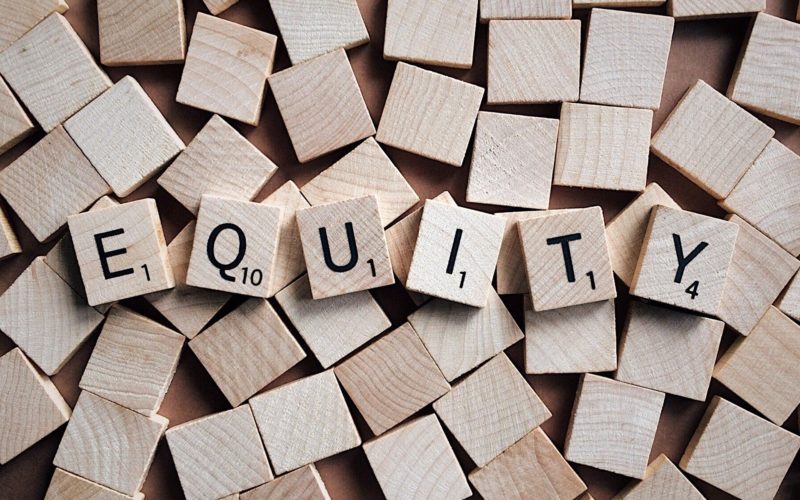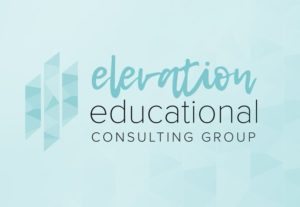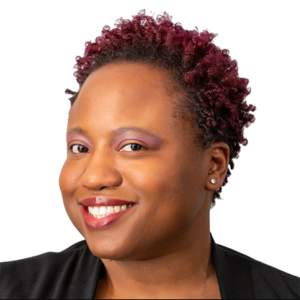Why I’m Excited about #EdEquityVA (and why you should be too!)

by Daquanna Harrison
On November 18th I had the honor of presenting to the Adult Education and Literacy ReMix Conference, on a Elevation Educational Consulting Group (EECG) present on more and more frequently these days— Diversity. While in general I am happy to see more and more adult education professionals and programs focusing on diversity, I have also seen how it can be done in a way that burdens those of us from marginalized communities and/or done as a fad without any longer-term sustainability features. I can proudly say this is not the case for the majority of the leaders and professionals who took part in this great conference! While the work is not yet done, the educators of Virginia showed that they are ready and willing to do the work of #EdEquityVA for the students of Virginia’s adult education system and I am happy that EECG was chosen to support these efforts!
Inequity in education has been a problem for generations and as adult educators we have seen how those inequities affect students for years, from those who did not finish school to those trying to enter the workforce or college but not able to meet the reading and math requirements though they graduated high school. Problems that affect people for so long are hard to solve. The problems of inequities in education are complex and intricate and the answers to these problems are often even more complex and intricate, yet there are some easy steps that those who are committed to change can take. Many of those steps I saw occurring in the leadership and the educators who organized and attended the conference. I hope that the following highlights inspire similar steps in other leaders and programs. It will take more than one keynote message to turn the tide for the diverse adult educators and students in Virginia but what I witnessed makes me optimistic and I hope you feel the same as you read about why I am excited about #EdEquityVA and why you should be too!
The Leadership
When I was contacted to be a keynote for the Adult Education and Literacy ReMix Conference, I was of course elated but was also worried that with diversity as the subject, often seen as divisive and felt personally, that the organizers of the conference would give so many parameters and ‘3rd rails’ not to touch that my address to the conference would be a whitewashed version of my true message. I readied myself for the meeting where I would be asked to make sure to only talk about diversity in certain terms or to avoid subjects that might ‘sow division’ or bring on White guilt…this meeting never happened! Instead, in a meeting that included State Coordinator Dr. Heidi Silver-Pacuilla, I was invited to, in fact, ‘Bring My Whole Self’! I was told my opinions, expert analysis, and lived experiences were not only enough, but were wanted, honored, and respected. In this conversation, Dr. Silver-Pacuilla and Katherine Hansen of The Virginia Adult Learning Resource Center at VCU did some very important steps that I want to highlight. In highlighting these steps, I hope to encourage Virginia’s adult education leaders to continue this work and more so. Further, I hope to provide other states’, municipalities’, schools’, and programs’ leadership with some guidance on how to support diversity in meaningful and sustainable ways.
They brought someone in who has an expertise in diversity
In adult education we often look internally first and ask those within our programs to take on new and exciting projects, yet for diversity this is not the best way to go. When introducing diversity or starting up a new initiative like what Virginia is doing with the ReMix Conference, it is important to not put this heavy lift on your staff. Bringing in an outsider takes the pressure off of the staff who represent diversity or marginalized communities. Diversity work is emotionally challenging. I would compare it to the battlefield medicine scenes we see in movies where the doctors and nurses are running around quickly assessing the worst injuries, giving quick salves to those who they can easily treat while taking some time with those who are critical but knowing that without major help their status may never change. There’s always a new patient coming in with a slightly different need. In these fictional scenes, the doctors and nurses are just a bit more stable than their patients and often later there are scenes of the doctors and nurses wiping their brows and discussing how hard it was but that they made it through. Now imagine if those doctors were being asked to also build the tents and the nurses had to also drive the tanks… this is what we are asking our staff when we ask them to take on our diversity initiatives without outside support. Not to mention that those from marginalized communities often have their own injuries they are mending! This is not to say you must have someone from the outside do all of the work, but at the very least you should have someone come in and get everyone on the same footing with vocabulary and overarching understanding of the major concepts. And yes, you will have to pay for these experts!
They showed that they would be public allies for the diversity work.
As I mentioned previously, I was ready to be told by leadership what not to say. I was ready to hear about what state regulations hampered them from what they ‘really wanted to do’ and which would in turn hamper me from being able to speak about certain needs of diverse communities. Instead, I was encouraged to push the attendees to think past the regulations and into what is needed for their students and programs. Even more important, the leaders did not just say, ‘fine, say what you want’, they were explicit that if I received any pushback from attendees that they were willing to jump in and use their power and privilege to support me. They knew the importance of their position and were not just willing to yield it in defense of diversity but made sure that they told me that this was their plan. They knew what they were asking of me could put me in the crosshairs of those who thought differently or those who, so used to the status quo, could try to derail the conversation. Being ready to use your privilege in whatever form, to support those who are helping you with your diversity initiative is a must. This work is hard. It is even harder, and will likely not succeed, if it is not publicly supported by leadership.
They already had the vocabulary of diversity, equity, and inclusion (DEI).
From the very beginning of our conversations, the leadership showed that they had done the work of studying and gaining knowledge about DEI and were well-versed in the work that they are spearheading. It is important that leadership have the minimum grasp of what they are asking of the subject matter expert they bring in. This allows the expert to focus on next steps and the needs of the larger community. As an expert, it is important to know where to begin and that you can safely leave the community knowing that they have others who can help guide them. Many DEI experts will not work with organizations that do not already show a strong commitment to diversity in written form and through the work of the leadership. While my company, Elevation Educational Consulting Group, does not have this requirement, I see why this could be a helpful requirement. Having others at the table who you do not have to explain everything to allows the expert to redirect their energy to the larger community, expanding the experts’ reach and impact.
The Educators
I purposefully conducted my keynote as an interactive workshop to allow for the educators to be able to begin to truly engage with the thoughts, ideas, and worries that would come up for them throughout the address. This was a bit of a gamble but I was sure the payout would be worth it at the end and the amazing educators of Virginia did not disappoint! The educators showed openness, true reflection, and vulnerability— all qualities much needed on the path to equity.
They were open about their diversity efforts.
The educators at the conference openly gave suggestions and asked questions about how they could better create a space where all students can feel welcomed and respected. From creating student success storybooks to positively approaching mistakes, the educators showed that they were doing the work of diversity in big and small ways. Oftentimes in settings discussing diversity, educators are cautious about saying what they are doing with the fear that they will be chastised or told they are not doing it right. These educators were proud of their work and knew that it was work that others would be encouraged by and their fellow educators showed their appreciation throughout the conference. Being open about our work is one step, but a more important step is having the support of others and the Virginia educators really showed their colleagues that they had their support!
Their reflections showed the desire to grow and learn.
Reflection is a major part of DEI work. Reflection can alter pathways and goals if done well. At EECG we include reflection in many of our workshops and consultancies to remind our clients that the work is not done in the workshop but is done internally. The results of the reflections often show us where a community is in their DEI efforts. As my team and I reviewed the reflections of the conference participants, it was clear that many of them were seeing where they needed to grow; but it went further in that many showed their willingness to take charge of their own growth. While I know this is only a sampling of the Virginia adult educators, I would say the majority are committed to the internal work needed to create equity in their classes and programs. The reflection was based on an identity that they do not think about often and asked, “How might not thinking of this identity affect your interactions with those who highly relate to that identity? We ask that you really reflect on this question and think about how it may affect aspects of your work relationships (to other staff or learners).” Here’s a few of the answers that really showed the educators’ willingness to reflect deeply even during this short keynote address.
| Identity of Focus | Selected Responses |
|---|---|
| Sexual Orientation |
|
| Race/Ethnicity |
|
| Education |
|
I show these examples not to say that they are prefect reflections, but instead to lift up the space of uncertainty and complexity as a good space to be in. DEI asks that we question and challenge ourselves and others and that we assume a posture of lifelong learning.
So… Why Am I Excied About #EdEquityVA?
I am excited because starting with the leadership and through to the educators, you can see that Virginia’s adult education system is making the right moves towards #EdEquityVA. For those in the Virginia programs and those looking from afar and wanting to follow their footsteps, here’s a quick list of some steps to take:
Use Diversity, Equity, and Inclusion (DEI) experts to get you started. One resource may be your state civil rights departments and organizations, as well as programs like the Maryland Equity and Inclusion Leadership Program from the University of Baltimore.
Be public about what you are doing and what you expect to be done for DEI. Be ready to show the world just how important this work is by using your status, privilege, and resources. A hashtag is one step but also doing the work publicly in a forum such as a conference really shows everyone that you are investing in this
Knowledge is key. As with all things, to do it well you must study, practice, and keep up-to-date. This goes for all in the community, but particularly our leaders must step up and be ready to guide and support the community. DEI and cultural competency demand that we stretch ourselves because by definition, they are not simply about your own experience but the collective and at times non-overlapping experiences of others.
Create a space where openness and risk are expected. There is no one-size-fits- all nor silver bullet to this work. Particularly in education where one student can change the norms of the class, it is important for there to be an expectation that teachers will be open about their hits and misses. If you are only seeing hits, then it is mostly likely that the misses are being hidden. Hidden misses are ticking bombs that could explode at any point and disrupt your DEI work. Misses and issues should be looked at, examined, and solved if progress is to occur.
Commit to reflecting at every level. Integrate the norms of DEI and cultural competency into work plans, classroom observation, data, and strategic plans. This will not only show your staff and others that this work is important, but also that they are expected to know what they did to move towards those norms. Reflecting in these ways pushes all a bit closer each time and reinforces that this is a lifelong learning process, not just a box to check.
Are you excited yet? If you are in Virginia, you certainly should be! I would love to hear from Virginia educators and others about how they are bringing to life #EdEquityVA. You can continue this conversation with me and others at EECG on LinkedIn and Facebook if you tag @Elevation Educational Consulting Group (look for the light teal, three-bar logo) and include #EdEquity or #EdEquityVA.

About Elevation Educational Consulting Group:
Elevation Educational Consulting Group (EECG) is a national consulting company focused on supporting education, workforce, and government entities through technical assistance, curriculum development, professional training, and project and change management.
Our mission is to elevate the effectiveness of educators, workforce professionals, and organizations in the field of education. EECG devotes its energy to passionately supporting organizations of all sizes through customized supports and strength-based practices.
EECG also offers a dynamic suite of alternative educational programming, Learning for the Future, for youth-adults focused on career development and supplemental learning; available as stand-alone programs or supplements to established programming. Learning for the Future is based on the tenets of Rigor, Social and Restorative Justice, and Technology.
Contact EECG for training, leadership development, or other alternative/adult education technical assistance.
Contact Information:
[email protected] 301-799-5281
www.ElevationEd.com
@ElevationEdGp
 Daquanna Harrison (She/Her) is the founder of Elevation Educational Consulting Group (www.ElevationEd.com) which works on projects within curriculum, trainings, technical assistance, SME, and program implementation; and provides customized supports and strength-based practices. Her primary focus is alternative and adult education. Her skills include:
Daquanna Harrison (She/Her) is the founder of Elevation Educational Consulting Group (www.ElevationEd.com) which works on projects within curriculum, trainings, technical assistance, SME, and program implementation; and provides customized supports and strength-based practices. Her primary focus is alternative and adult education. Her skills include:
- evaluating and creating curriculum and learning tools;
- developing, implementing, and managing educational programs;
- data analysis; and diversity, leadership,
- and teacher training.
Currently President of MAACCE Board of Directors (www.MAACCEMD.org), on the T.E.A.C.H advisory board with NBCDI (www. NBCDI.org), and on the XPRIZE Connect Advisory Board supporting youth diversity in STEM. She is an alumna of Howard, American, Duke, and the University of Baltimore’s Equity and Inclusion Leadership Program and graduate of the Education Policy Fellowship Program from the Institute for Educational Leadership. Proudly from the Gullah Islands
of SC, she resides in Prince George, Maryland where she was recognized as 40 Under 40 for Excellence in Education.